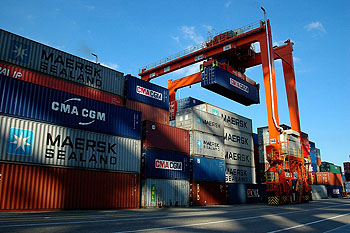After an unwelcome reprieve caused by the global recession, employers in international trade again are growing concerned about whether there will be enough qualified candidates to fill the next generation of cargo and logistics jobs.
A spate of reports over the last two years has conjured up images of ships with too few seafarers to operate them, truck-ready freight with too few drivers to do the hauling and warehouse and distribution centers without enough qualified administrators to run them.
The worldwide shipping industry, which employs more than 1 million people to crew its technologically advanced vessels, is having trouble training enough seafarers, the International Maritime Organization said recently. It forecast a shortfall of 27,000 to 46,000 ships’ officers in the near future.
The U.S. trucking industry will need to hire about 200,000 drivers this year and another 200,000 by the end of 2011 to keep up with expected growth as more and more drivers hang up their keys, according to the Council of Supply Chain Management Professionals.
Hey, I have an idea! I know this violates the rules of modern American capitalism, but here it is: they could pay their workers more. I’ve heard rumors from economists for years of supply curves sloping upwards, and this seems like an ideal chance to test out their theory.
Yes, yes, this is radical advice for non-CEOs. But why not think outside the box?


















